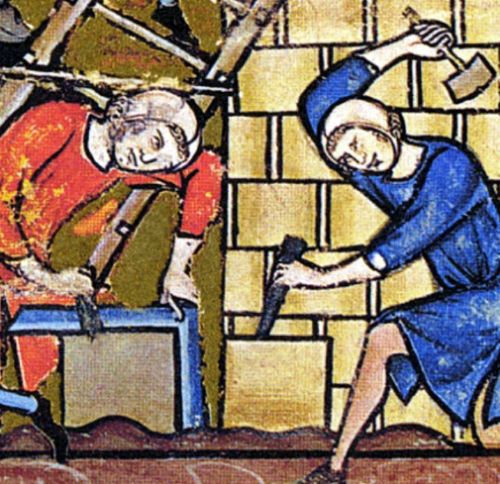Get Today in Masonic History into your Inbox. Sign up today for one of our email lists!
Need an article for your Trestleboard/Newsletter see our Use Policy
Freeborn

Today in Masonic History we discuss the term "Freeborn."
The term freeborn is used often in Masonic ritual.
For many American Freemasons, the term "freeborn" brings up ideas of slavery. While it most certainly was used at times to deny good men admission to the fraternity, it's true meaning has more to do with the apprenticeship structure used for centuries by operative Masons and others.
In the dark and middle ages currency was often scarce. The one currency many had available to them, was their offspring. It was common practice to exchange for goods and services, an unborn child to apprentice. While it gave the family access to the more immediate needs, it set the child up with a skill set and a career. It also meant the child was indentured from birth and was not "freeborn."
It is from these types of arrangments it is most likely the expression "you cannot serve two masters" is derived. For example if a child was apprenticed to a carpenter, but wanted to be a mason, they'd be unable to change without compensation to the master carpenter, possibly ruining the family. Indentured apprentices, unlike the journeyman of today, were not permitted other pursuits. They lived with the master tradesman, often from a very young age. They were treated as a servant until they progressed. Their ability to take on work was solely at the discretion of the master tradesman. They had very little free will and often were a mouthpiece for the opinions and will of the master they served. If they were apprenticed to two master tradesman at the same time, conflict ensued.
As society entered the enlightenment it became more common for those contracts to be broken. Most master tradesman wanted someone who was skilled at the tasks assigned to them so he was able to focus on other projects. Worrying about their apprentice running off was not good for business. An intersting example of someone breaking such a contract was Benjamin Franklin. At the age of 17, Franklin became a "fugitive" because he was apprenticed to his brother and he fled to Philadelphia ending his apprenticeship without the master printers permission.
Finding someone who is not freeborn in the modern world is unlikely, yet still possible. There have been cases in the modern fraternity where individuals sought membership because their employer or someone with authority over them compelled them to join in order to bend the lodge to their will. This obviously is bad for the fraternity and the lodge. It puts the person into the category of serving two masters, potenially undermining our democratic principle of one person, one vote. Which in the opinion of this writer, is the true reason being freeborn is a requirement of membership.
This article provided by Brother Eric C. Steele.

